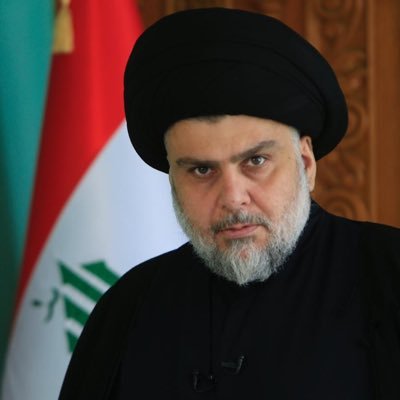Huawei’s Li Peng: Unleashing New Growth in 5G and New 5.5G Commercialization

Iraq’s political stalemate raising chances of Shia on Shia clashes
Repeatedly thwarted, Muqtada al-Sadr has begun implying the use of force and provoking his Iran-backed rivals
After months of frustration and impasse, relations between Muqtada al-Sadr and his Iran-backed Shia rivals have deteriorated so badly that Iraqi Shia leaders are predicting armed clashes could even be on the cards.
Sadr, an influential Shia cleric with a fiercely loyal following, emerged from Iraq’s October parliamentary elections as the clear winner. But his victory was quickly followed by a series of defeats that have stopped him and his allies forming a government.
Shia factions close to Iran were set to be frozen out of government, with Sadr allying with the Sunni bloc and Kurdish KDP. But a Federal Supreme Court ruling over the quorum needed for the government-formation process has meant Sadr has been unable to swear in his choice of president and prime minister due to his rivals boycotting parliament.

The cleric then settled on sticking with the current government led by Mustafa al-Kadhimi, only for the federal court to again rule against him, saying Kadhimi’s cabinet was just operating in a caretaker role and could not make the important decisions necessary to keep Iraq going.
That decision unleashed an anger in Sadr not seen by his rivals since government-formation negotiations began. It prompted him to publicly denounce the judiciary, accusing it of “going along” with the “disgraceful” actions of the “blocking third” of MPs boycotting parliament.
In a broadcast last week, Sadr claimed the “blocking third” had obstructed government formation because they “do not exist without authority”. He promised not to abandon his project, which would see two decades of rule-by-consensus ripped up for a majority government excluding the Iranian-backed parties.
Sadr warned his opponents of his anger and impatience. “Do you think that your actions will force us to ally with you?” he asked.
“No, a thousand nos. We will not return Iraq to quotas, corruption and abhorrent consensus.”
Angering Iran’s allies
The three-minute-long speech frightened many Iraqis and provoked Sadr’s opponents, particularly the leaders of the armed Shia factions. What followed made it worse.
Any ambiguity about Sadr’s intentions was soon dispelled by Abu Mustafa al-Hamidawi, head of Sadr’s armed wing Saraya al-Salam, who tweeted afterwards: “We are ready, so wait for us.”
Hundreds of Saraya al-Salam fighters then paraded in Sadr City, an impoverished east Baghdad neighbourhood that is the Sadrist stronghold, declaring their readiness to carry out the orders of their leader.


